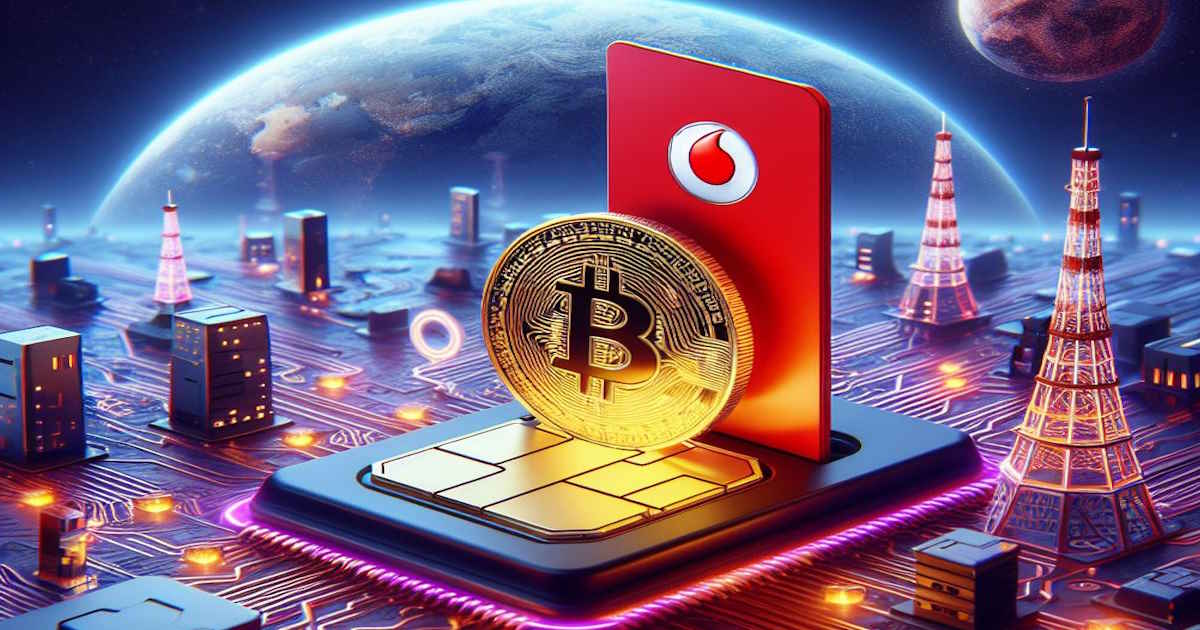Bitcoin
Seven Reasons Why Why Bitcoin is Better Than Fiat Money

Bitcoin is a decentralized digital currency that has gained widespread popularity in recent years as an alternative to fiat money. While fiat money is issued and backed by governments, bitcoin operates on a peer-to-peer network and is not controlled by any central authority. This decentralization has several advantages over traditional fiat money that make it a better choice for many people.
Contents
The Definition of Fiat Money
Fiat money is a type of currency that is issued and backed by a government or central authority. Unlike commodities such as gold or silver, which have intrinsic value, fiat money has value because it is decreed to be legal tender by the government that issues it. This means that it can be used to buy goods and services, and to pay taxes, because it is recognized as a medium of exchange by the government.
The most common examples of fiat money are paper currency and coins, which are issued by central banks or governments. For example, the US dollar, the Euro, and the Japanese Yen are all examples of fiat money. It is also possible for fiat money to exist in digital form, as in the case of digital currencies issued by central banks.
1- Faster Transactions
Bitcoin transactions are generally faster than bank wire transfers. This is because, while bank wire transfers can take several days to clear, Bitcoin transactions can be confirmed on the blockchain within minutes.
One of the main reasons that bank wire transfers take longer to clear is that they are subject to various regulations and compliance checks. Banks are required to verify the identity of their customers and to monitor transactions for suspicious activity, which can slow down the process. Additionally, bank wire transfers often involve intermediaries such as correspondent banks, which can add additional layers of bureaucracy and delay.
On the other hand, Bitcoin transactions are processed on a peer-to-peer network, which means that there are no intermediaries involved. This allows transactions to be confirmed more quickly and easily. Additionally, while banks are required to comply with anti-money laundering (AML) and know-your-customer (KYC) regulations, these regulations are less strict for Bitcoin, which means that transactions can be processed more quickly.
Another key factor that makes Bitcoin transactions faster is that it doesn’t require intermediaries like correspondent banks, it uses a decentralized system called blockchain, which allows for faster and more secure transactions. Because the blockchain is maintained by a network of computers around the world, transactions can be confirmed and processed more quickly and efficiently.
2- Security
One of the biggest advantages of Bitcoin is its security. Bitcoin transactions are recorded on a public ledger called the blockchain, which is maintained by a large network of computers around the world. This makes it almost impossible for any one person or group to manipulate the currency or steal from other users. Also, by default, Bitcoin (BTC) Wallets addresses are not tied to individuals’ personal information, providing an additional layer of security and privacy for users.
3- Scarcity
Another advantage of Bitcoin is its scarcity. There will only ever be 21 million bitcoins in existence, and the rate at which new bitcoins are created is decreasing over time. This ensures that the value of bitcoin will not be diluted through inflation, as is often the case with fiat currencies.
4- Flexibility and Freedom
Bitcoin also offers greater flexibility and freedom than fiat money. Transactions can be made quickly and easily, with no need for a bank account or government-issued ID. This makes it particularly useful for people living in countries with unstable currencies or restrictive banking systems. Additionally, bitcoin can be used to make purchases online, and is accepted by an increasing number of merchants around the world.
5- Censorship Resistance
Censorship resistance is one of the key features of Bitcoin that sets it apart from fiat money. Since Bitcoin is decentralized and not controlled by any government or institution, it is not subject to censorship or control by any central authority. This means that individuals are free to use and transact with Bitcoin without fear of interference or restriction.
One of the main ways that governments and institutions can control fiat money is through the use of capital controls. These are measures put in place to restrict the flow of money in and out of a country, often in an attempt to stabilize a currency or prevent capital flight. However, these controls can also be used to restrict the freedom of individuals and organizations to access and use their own money.
6- Transparency
Transparency is another key feature of Bitcoin that sets it apart from fiat money. Because all Bitcoin transactions are recorded on a public ledger called the blockchain, they can be easily tracked and audited by anyone. This makes it possible to trace the flow of bitcoins from one address to another, and to see the entire history of a particular bitcoin.
The transparency of the blockchain is maintained by a network of computers around the world that work together to validate and record transactions. Each block in the blockchain contains a record of multiple transactions, and once a block is added to the blockchain, it cannot be altered or deleted. This creates an immutable record of all Bitcoin transactions that is open for anyone to see.
This level of transparency has several advantages. One of the main advantages is that it makes it much more difficult for individuals or organizations to engage in illegal or fraudulent activities using Bitcoin. For example, if a criminal attempts to launder money using Bitcoin, it would be possible for law enforcement to track the movement of the bitcoins and identify the individuals involved.
Additionally, transparency in Bitcoin can also be useful for businesses and organizations that wish to demonstrate their financial integrity. By sharing their Bitcoin addresses, they can show their customers and partners that they are transparent in their financial dealings.
Another advantage of transparency is that it allows individuals to protect their own financial privacy. Because Bitcoin addresses are not tied to individuals’ personal information, people can conduct transactions without revealing their identities. However, if they choose to, they can also share the details of their transactions with others, providing them with more control over the amount of information they choose to reveal.
7- The Decentralized Nature of Bitcoin
Finally, bitcoin has the potential to be a more equitable form of money. Because it is decentralized and not controlled by any government or institution, it is accessible to anyone with an internet connection. This has the potential to empower people in developing countries and marginalized communities who have been traditionally excluded from the global financial system.
Bitcoin’s decentralized nature makes it resistant to government attempts to shut down or control the network. Since there is no central point of control, it would be extremely difficult for any one person or group to shut down the entire network. Additionally, even if certain parts of the network were shut down, the network as a whole would still be able to continue functioning.
Conclusion
Overall, bitcoin offers several advantages over traditional fiat money. Its security, scarcity, flexibility, and potential for greater equity make it an attractive alternative for many people. As more people begin to use and accept bitcoin, it is likely that it will continue to grow in popularity as a form of money.
Bitcoin
French Police Arrest Crypto Kidnappers After Finger Cutting

Paris, France – French police arrested several suspects this week tied to a disturbing May kidnapping. The victim was the elderly father of a wealthy cryptocurrency entrepreneur. A source close to the investigation confirmed the arrests on Wednesday.
This incident is the latest in a concerning series of crimes. Over recent months, criminals have repeatedly targeted the families of France’s crypto elite. The goal appears consistent: extortion through abduction.
The May Kidnapping: Violence in Daylight
The events prompting these arrests unfolded on May 1st. In Paris’s busy 14th arrondissement, four masked men struck in broad daylight. They seized the elderly father of a prominent crypto businessman. Witnesses saw the men force the victim into a delivery van.
The kidnappers acted brutally. They cut off one of the victim’s fingers. They demanded a ransom of several million euros (equivalent to millions of dollars) for his release.
French police responded decisively. A tactical unit located where the man was being held. Days after the kidnapping, they stormed a house in a Paris suburb. They successfully freed the victim.
Recent Arrests and a Pattern of Crime
The arrests made this Tuesday target individuals suspected of direct involvement in this violent abduction and extortion plot. The source did not specify the exact number of people arrested or their locations. Under French law, suspects can be held for questioning for up to 96 hours before charges must be filed.
This case isn’t isolated. Since January, French authorities have tracked a worrying trend. Wealthy individuals involved in cryptocurrencies, and crucially, their families, have become prime targets for kidnapping gangs.
The Balland Case: A Chilling Precedent
The spate began dramatically in January. Kidnappers abducted David Balland, co-founder of the billion-dollar crypto security firm Ledger, and his partner. The perpetrators used horrific tactics similar to the May case. They cut off Balland’s finger and demanded a large ransom.
Police found Balland the next day. His girlfriend was discovered tied up in the trunk of a car outside Paris. This case highlighted the serious threat facing the crypto community.
Significant progress was made last week. Moroccan authorities, acting on French requests, arrested Badiss Mohamed Amide Bajjou in Tangier. The 24-year-old is suspected of being the mastermind behind the Balland kidnapping and other similar attacks. At least nine other suspects are under investigation in that specific case.
“Stop the Mexicanisation”: Fear and Frustration Mount
The repeated attacks have created deep anxiety. Wealth generated through the volatile but lucrative cryptocurrency market has painted targets on the backs of entrepreneurs and their loved ones. The violence and brazen tactics recall organized crime operations seen elsewhere.
One prominent crypto entrepreneur voiced this fear starkly. He urged French authorities to “stop the Mexicanisation of France.” This phrase directly references the kidnappings often perpetrated by violent cartels in Mexico.
Government Steps: Meetings and Security Pledges
The growing crisis forced a government response. Last month, Interior Minister Bruno Retailleau held an emergency meeting. He met with leaders from the cryptocurrency sector. The Ministry of the Interior announced plans following this meeting. They pledged to bolster security measures specifically for individuals deemed high-risk within the crypto industry.
The Security Challenge for Crypto Wealth
This wave of kidnappings underscores a harsh reality. Sudden, significant wealth linked to cryptocurrencies attracts dangerous criminal attention. Unlike traditional wealth often held in regulated banks or visible assets, crypto fortunes can be harder to trace. This might make victims seem like easier targets for extortion, criminals mistakenly believing crypto ransoms are harder to track or recover.
However, the brutal methods – severing fingers to pressure families – demonstrate extreme violence. It shows these gangs operate with little regard for human life. The targeting of elderly parents adds another layer of cruelty, exploiting family bonds for financial gain.
The Investigation Continues
While this week’s arrests mark progress in the May case, the broader threat remains. Authorities are actively investigating the connections between these incidents. They are working to dismantle the networks responsible for planning and executing these kidnappings.
Key questions persist:
- Are these separate criminal groups, or part of a larger, coordinated network?
- How are victims being identified and targeted?
- What specific security enhancements will the government implement?
The French crypto community watches nervously. They hope these arrests signal a turning point. They want authorities to break the cycle of violence targeting them and their families. The pressure is on police and government officials to deliver tangible results and restore a sense of safety.
The promise of cryptocurrency innovation now comes with a grim caveat in France: immense wealth can carry immense personal risk. As investigations deepen and security measures evolve, the nation grapples with preventing its crypto boom from being overshadowed by a crime wave targeting its architects.
Bitcoin
Telecom Giant Vodafone Bringing Crypto to the Masses Via SIM Cards

The major telecom company Vodafone has unveiled an ambitious plan to integrate cryptocurrency wallets directly into the SIM cards used by mobile phones on its network. This cutting-edge move aims to make blockchain technology and crypto easily accessible to millions of smartphone users worldwide.
What’s Happening?
Vodafone, one of the largest mobile operators based in the UK, intends to combine crypto wallets with the subscriber identity module (SIM) cards inside phones. SIM cards are little chips that allow mobile devices to connect to a carrier’s network.
By embedding a crypto wallet into these ubiquitous SIM cards, Vodafone wants to introduce blockchain and virtual currency technology to the masses through the smartphones we all use daily.
The Bigger Blockchain Picture
This crypto SIM integration is part of Vodafone’s bigger blockchain strategy. The company has developed its own “PairPoint Digital Asset Broker” platform to enable secure digital identities and transactions across different blockchains.
Vodafone’s blockchain lead David Palmer emphasized in an interview that mobile phones are the main way billions access digital services and commerce. So partnering blockchain with SIM card tech is crucial for widespread adoption.
By 2023, there will be over 8 billion mobile phones in use globally. And estimates suggest crypto wallets on smartphones could reach 5.6 billion by 2030 as digital money goes mainstream.
Financial Restructuring
The crypto wallet announcement comes as Vodafone seeks to restructure its finances and raise billions in new funds through debt offerings and loans over the next couple years.
The company plans to take on $2.9 billion in total debt, including $1.8 billion in direct loans. Some of this financial overhaul relates to issues at Vodafone’s Indian subsidiary Vodafone Idea Ltd.
While navigating these monetary hurdles, Vodafone still sees major opportunities in emerging technologies like blockchain and aims to be an innovator helping drive mainstream crypto adoption through the SIM card strategy.
Bitcoin
No Evidence of Hack, Says Bitfinex CTO Amid Ransomware Gang’s Allegations

In the world of cybersecurity, claims of data breaches can cause significant concern and speculation. Recently, a ransomware group named FSOCIETY claimed to have successfully hacked several organizations, including the cryptocurrency exchange Bitfinex. However, Bitfinex’s Chief Technology Officer (CTO), Paolo Ardoino, has dismissed these rumors, stating that a thorough analysis of their systems revealed no evidence of a breach.
According to Ardoino, who is also the CEO of Tether, less than 25% of the email addresses allegedly stolen from Bitfinex’s servers match legitimate users. This casts doubt on the validity of FSOCIETY’s claims regarding the supposed hack.
The ransomware group, styled after the fictional hacking group from the TV show “Mr. Robot,” claimed to have breached several victims, including Rutgers University, consulting firm SBC Global, and a cryptocurrency exchange they referred to as “Coinmoma,” which is likely a misspelling of Coinmama.
Ardoino expressed skepticism about the group’s claims, stating that if they had indeed hacked Bitfinex, they would have demanded a ransom through the exchange’s bug bounty program, customer support channels, emails, or social media accounts. However, Bitfinex received no such requests from FSOCIETY.
Furthermore, Ardoino shared a message from a security researcher suggesting that the real motivation behind the alleged hacks might be to promote FSOCIETY’s ransomware tools, which they reportedly sell access to in exchange for a subscription fee and a commission on stolen profits. Ardoino questioned the group’s need to sell their tools for $299 if they had truly hacked a major exchange like Bitfinex.
It’s worth noting that Bitfinex has previously fallen victim to a significant hack in 2016, resulting in the theft of a substantial amount of Bitcoin. Two individuals, including crypto rapper ‘Razzlekhan,’ pleaded guilty to money laundering charges in connection with that incident.

While the claims made by FSOCIETY have yet to be verified by the alleged victims, Bitfinex’s CTO remains firm in his stance that no breach has occurred. As cybersecurity threats continue to evolve, it is crucial for organizations to remain vigilant and take proactive measures to protect their systems and users’ data.
-

 Altcoins5 years ago
Altcoins5 years agoProject Review: Pi Network, a New Scam Project in Town
-

 Bitcoin4 years ago
Bitcoin4 years agoBitcoin Worth $1.2M Seized From Arrested Indian Hacker
-

 Altcoins6 years ago
Altcoins6 years agoReview: Play Arcade Games Inside ARK Wallet And Win Some Free Cryptocurrency
-

 Blockchain6 years ago
Blockchain6 years agoA Full Review: Utopia A New Decentralized P2P Blockchain
-

 Bitcoin6 years ago
Bitcoin6 years agoAnother Exit Scam: NovaChain Shuts Down
-

 Exchanges6 years ago
Exchanges6 years agoCrex24 Will Require KYC Verification
-

 Bitcoin6 years ago
Bitcoin6 years agoJohn McAfee Has Gone Missing
-

 Blockchain6 years ago
Blockchain6 years agoProject Review: Dmail Decentralized Blockchain Email


















